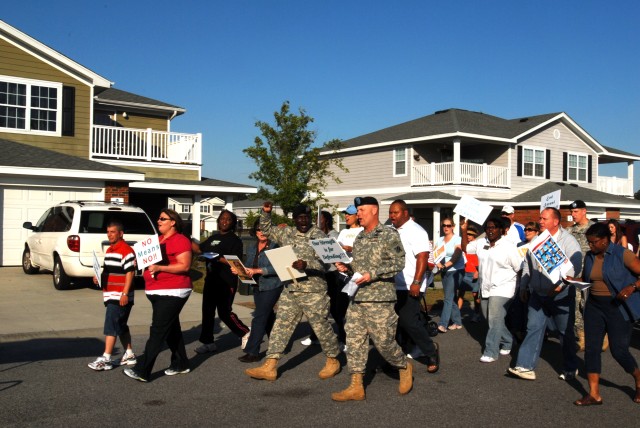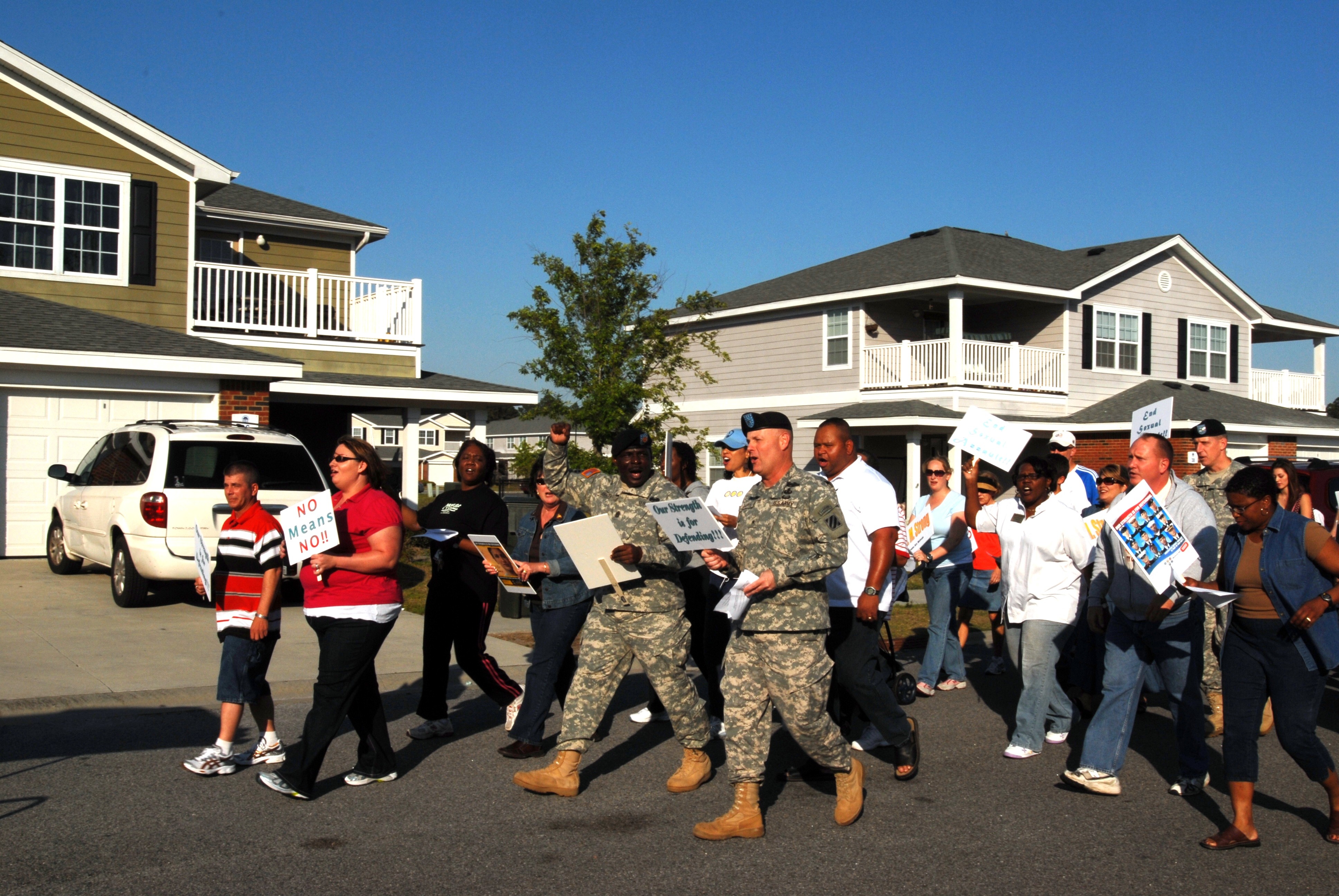
FORT STEWART, Ga. Aca,!" "No means no," and "sexual violence of any sort will not be tolerated," were the prevailing themes of Fort Stewart's Take Back the Night Ceremony held, April 22.
Soldiers and civilians marched through neighborhoods to demonstrate a united front against ugly acts toward both men and women.
"No one should be afraid of running alone at night; walking their dog alone or that the clothes they're wearing are too provocative," said Brig. Gen. Patrick Donahue, 3rd Infantry Division deputy commanding general for maneuvers, just before the march began. "No person should be worried about this is in our society."
Gathered on the lawn in front of the Southern Oaks Community Center, Brig. Gen. Donahue told the group of about 50 people that the goal of the evening was to take a step toward creating community where people respect one another and it's a safe place for everyone to live.
"Sexual assault of any sort causes mistrust and erodes the effectiveness of our units - it cannot be tolerated," he added.
As Brig. Gen. Donahue spoke on Fort Stewart, Brig. Gen. Thomas Vandal, the deputy commanding general for support, addressed a crowd during Hunter Army Airfield's ceremony at the New Gannam housing area.
Take back the Night began in 1976 in Belgium, where women attending the International Tribunal on Crimes Against Women marched together holding candles to protest how women were subjected to violence around the world.
From the second quarter of fiscal year 2008 to the second quarter of fiscal year 2009, there have been 45 cases of sexual assault reported on Fort Stewart and Hunter Army Airfield, according to Shirley Stephens, the Sexual Assault Response Program coordinator for Fort Stewart-Hunter Army Airfield. The SARP provides advocacy for adult Family Members and Soldiers who have been sexually assaulted by a Soldier on or off post.
Holding signs and chanting lines like, "our strength is for defending," the motivated group of marchers drew people out of their homes to see what was going on, and some joined the walk against violence.
"It's important that we unite, there's power in numbers," said Harvey Buchanon, the husband of Shatrece Buchanon the 3rd Infantry Division Equal Opportunity officer. "Everyone has rights - men and women alike."
April is Sexual Assault Awareness Month, and programs and events like Take Back the Night were initiated to reiterate the "I. A.M. Strong" campaign. The letters I, A, and M stand for Intervene - Act - Motivate. The plan is to encourage everyone including, civilians, leaders and peers, to address behavior that can lead to sexual assault. However, prevention now also includes extensive investigating and maximum punishments.
Thirty special investigators and 15 prosecutors were hired and assigned to Army installations with the highest occurrences of sexual assault. Thirty-five more examiners were hired to work at the U.S. Army Criminal Investigation Laboratory. Also, specialized training with the National Advocacy Center was funded for Army prosecutors.
The goal is to end sexual violence, but measures are in place to ensure that assailants are found guilty and convicted. Help for victims is included in the "I. A.M. Strong" campaign. Victims can contact the Army Community Service Victim Advocacy Program 24 hours a day at 767-3032 at Fort Stewart or 315-5343 at Hunter Army Airfield.
Adult Family Members and Soldiers who have been assaulted by a Soldier can report the incident in either a restricted or unrestricted report. A restricted report allows the victim to receive counseling and medical attention without triggering an investigation process. Stephens said this method has increased the number of reports. When victims want an official investigation of the crime he or she can notify their chain of command, law enforcement or a Sexual Assault Response Coordinator.
Stephens advises men and women that the best way to prevent being victimized is to "Know who you're with, trust your instincts, and say no and mean it."

Social Sharing